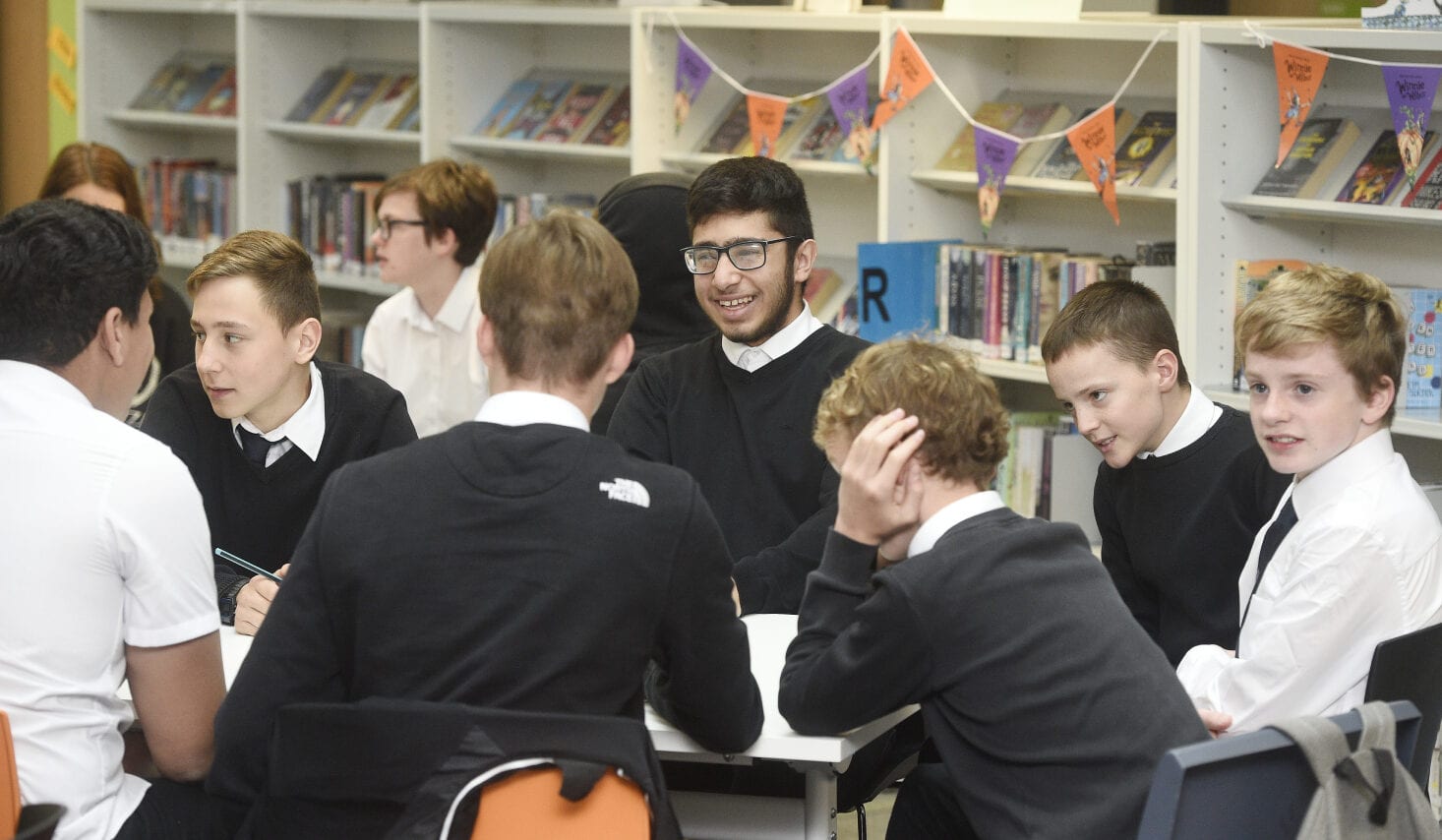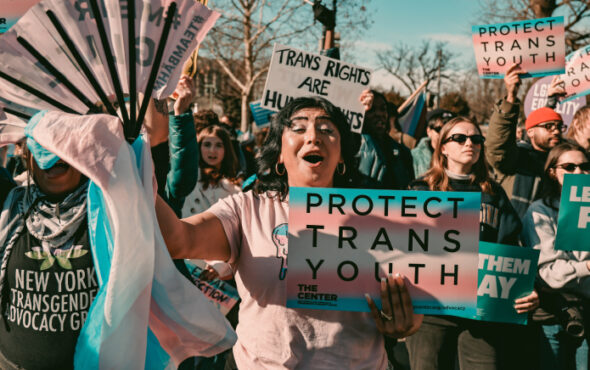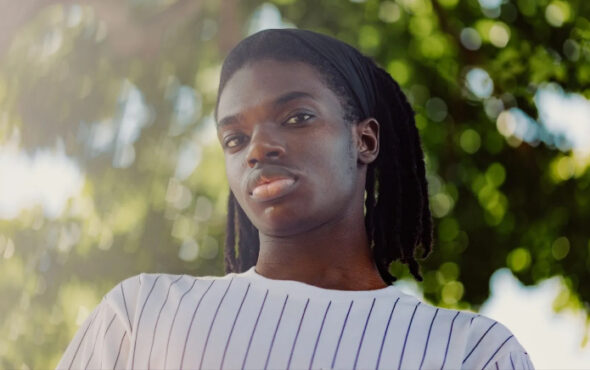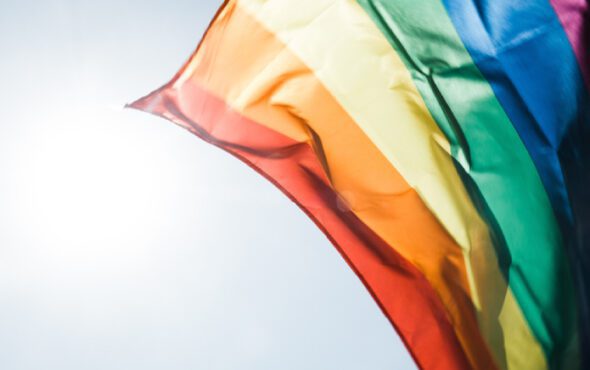
It feels like common sense that the more supportive upbringing a young person has, the better chances they have of thriving in adulthood. But never before has there been such a study as Just Like Us’ Positive Futures report, looking explicitly at the connection between growing up in LGBTQ+ inclusive homes and schools and the mental health, wellbeing and even career prospect outcomes for early adults.
The results are astonishing. LGBTQ+ young adults who didn’t get the support they needed growing up are four times more likely to feel ashamed of who they are and nearly half as likely to say they’re happy overall than those who were embraced for being themselves.
We can never underestimate the value of supporting and accepting LGBTQ+ young people. If the evidence shows your child or student is going to be happier and more successful for years to come, why not celebrate them for who they are?
Sometimes it’s as simple as the language we use. Hearing negative slurs and comments about LGBTQ+ people is often the first sign that someone isn’t safe for a LGBTQ+ young person to be themselves around. But it’s also about the inability to see our realities reflected in the things we learn about, the bullying at school and the disappointment that comes when our LGBTQ+ identities don’t live up to family expectations.
Your formative years are tough enough. Our report found that not only does the level of support LGBTQ+ people have growing up impact them well into early adulthood, but that they also face a unique set of fresh challenges. A quarter of LGBTQ+ people go back into the closet when starting work, a third are not confident their parents will accept them and they are twice as likely than their non-LGBTQ+ peers to have self-harmed. On top of this, disabled LGBTQ+ young people face further mental health challenges and LGBTQ+ young adults of colour often don’t feel part of the community that many white LGBTQ+ people find their home in.
This generation of LGBTQ+ young adults have just been through the pandemic and lockdowns at a pivotal point in their lives. Now we are emerging into a cost of living crisis at a time when they are trying to establish their careers and figure out who they are. On top of that, they also have to contend with being LGBTQ+ in a world that prioritises those who are cisgender and heterosexual.
In the workplace, LGBTQ+ young adult employees face higher levels of bullying, many earn less than their straight peers, and half are not confident they’ll have a career they’ll enjoy.
The report shows just how far we have to go. We are in 2023 yet LGBTQ+ young people still face hugely disproportionate and damaging challenges, and while things are worsening for trans and non-binary young people, there is a vocal minority determined to erase them and those who support them. It is both heartbreaking and horrifying to see this state of affairs play out.
Many LGBTQ+ young people are experiencing higher levels of abuse, spanning physical, sexual and verbal abuse. In fact, the majority of trans young adults (72%) have faced verbal abuse in the past year. One LGBTQ+ respondent said the verbal abuse came from ‘a teacher’, another said they experienced ‘name calling from family members’. These are the exact people meant to support and care for young people.
We also found that it’s still common for LGBTQ+ young adults to feel ashamed of their sexual orientation and/or gender identity. In fact, lesbians were the most likely to be struggling with shame (and were among the lowest paid at work, along with asexual respondents). Many also contemplate suicide, and this was particularly prevalent among bisexual/pansexual, trans and non-binary respondents. There can be no doubt: growing up LGBTQ+ is still unacceptably tough. And it’s particularly getting tougher for trans young people.
Time and time again we saw in the report findings that trans young people are facing some of the poorest outcomes. Only 6% of trans respondents felt supported at school. In early adulthood, trans youth are struggling more than many others in the LGBTQ+ community, in areas ranging from safety, self-harm and suicidal thoughts, to employment levels and family relationships. I worry this will continue to worsen in the current UK political, social and media climates unless parents, carers and teachers talk positively and openly about their support for LGBTQ+ people.
However, there is some good news. The report found that just 3% of those who self-describe as unsupportive of trans people even know a trans person, and that when you do know a trans person, you’re twice as likely to be an ally. We also found that despite a nasty and unhelpful trope suggesting lesbians are somehow inherently anti-trans, they were the most supportive of trans people in the study.
And lastly, there has never been clearer evidence that by supporting LGBTQ+ young people, you will help the next generation to thrive. The mean age that young people realise they are LGBTQ+ is 13.7 years old. What you do and say in school and at home will have a long-lasting impact on LGBTQ+ young people’s mental health, wellbeing, family relationships, career prospects and even their belief that they can one day have a happy family of their own if they’d like to.
But this should also be a warning to us all: if we fail to support our LGBTQ+ young people, they will face those devastating consequences well into adulthood.
The Positive Futures report by Just Like Us, with research independently conducted by Cibyl and sponsored by Deloitte, is out now. Read the report here.


